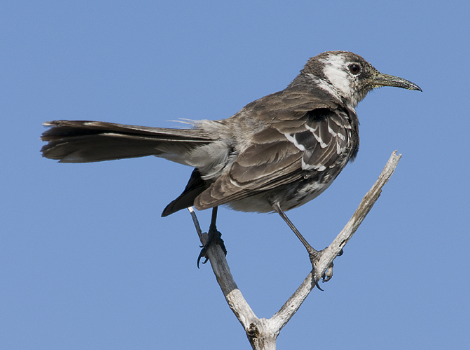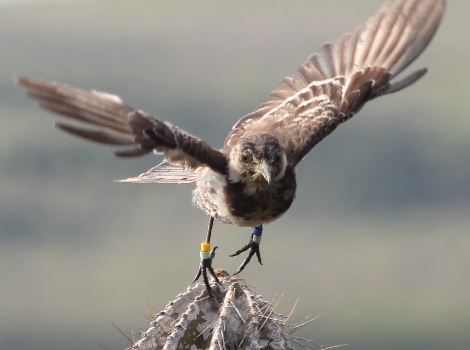Species Data
Common Name
Galapagos mockingbird
Scientific Name
Mimus parvulus
Spanish Name
Cucuve de Galápagos
Conservation Status

Least Concern
Endemic/Native/Introduced
Endemic
Size
Between 25 and 27cm in length
Average Lifespan
Unknown
Predators
Cats and Rats
Food
Omnivorous (varied diet includes; arthropods, fruit, nectar, eggs and ticks, but sometimes the blood of iguanas and dead flesh)
Animal Class
Aves
Species Overview
The Galapagos mockingbird is thought to have been an inspiration for Darwin’s theory of natural selection. There are currently seven subspecies of mockingbird in Galapagos. These differ slightly in overall size, colouration and markings. As co-operative breeders in territorial groups of 2-5 adults (sometimes more), there is normally one or two breeding pairs with the non-breeders helping to raise chicks. Galapagos mockingbirds can often be seen running along the ground instead of flying, their nests are most likely to be found in prickly pear cactus
For further information you can visit:

